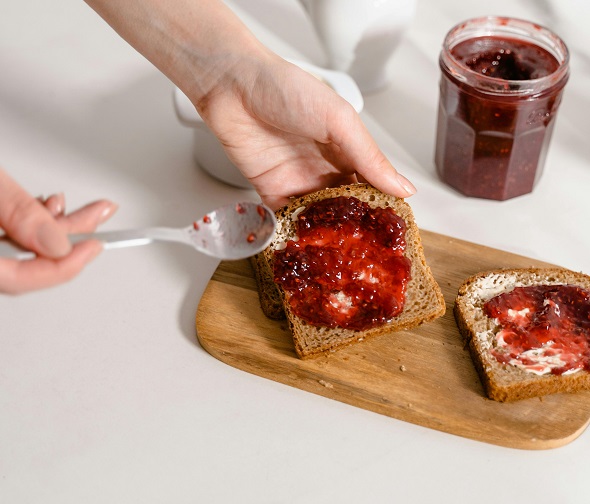As the demand for healthier alternatives to sugar continues to rise, stevia has become a prominent choice in the natural sweetener market. Known for its plant-based origins and zero-calorie profile, stevia is widely used in food and beverage products around the world. This growing popularity has led to the emergence of many stevia manufacturing companies that specialize in producing high-quality stevia extracts for a variety of applications.
The key players in the stevia manufacturing industry, their production processes, and how they contribute to the global stevia market.

1.The importance of stevia in 2024's market
Stevia, derived from the leaves of the Stevia rebaudiana plant, has gained significant attention as a natural sugar substitute. It is especially valued for its sweetness, which can be up to 300 times stronger than regular sugar, without the associated calories. As health-conscious consumers and governments worldwide focus on reducing sugar consumption, the demand for stevia products continues to surge.
With this increased demand comes the need for reliable stevia manufacturers that can provide high-quality products to meet the needs of various industries, including food and beverage, pharmaceuticals, and cosmetics.
2. Key stevia manufacturing companies around the global
Several major companies have established themselves as leading stevia producers, known for their advanced extraction technologies, innovative product development, and commitment to quality. Here are some of the most prominent stevia manufacturing companies shaping the industry:
(1) PURECIRCLE
· Location: Malaysia, Global Operations
· Overview: PureCircle is one of the largest and most well-known stevia manufacturing companies worldwide. Founded in 2001, the company has focused on developing sustainable stevia farming practices, while also investing heavily in research and innovation to improve the quality and taste of their stevia extracts.
· Specialty: PureCircle is known for producing high-purity stevia sweeteners, including stevia extracts with improved taste profiles, such as Reb M and Reb D. These extracts offer a cleaner taste with reduced bitterness, making them popular among food and beverage manufacturers.
· Sustainability: The company is also a leader in sustainability, ensuring that its stevia farming practices are environmentally responsible.
(2) GL STEVIA
· Location: China
· Overview: GL Stevia is a professional manufacturer of stevia and one of the pioneers in the stevia industry. Their operations involve a vertically integrated approach, from stevia cultivation to extraction and processing.
· Specialty: The company produces a variety of stevia sweeteners, including enzyme-modified stevia, which has a fuller and rounder sweetness with reduced aftertaste. Their stevia products are widely used in both the domestic and international markets.
· Market Reach: GL Stevia exports stevia to numerous countries, catering to industries focused on sugar reduction solutions.
(3) TATE&LYLE
· Location: United Kingdom
· Overview: Tate & Lyle is a global supplier of food and beverage ingredients, with a strong presence in the stevia market. The company has partnered with leading stevia producers to offer its own line of stevia-based sweeteners under the brand name “TASTEVA.”
· Specialty: Tate & Lyle's TASTEVA sweeteners are known for their clean taste and reduced bitterness. The company leverages its global distribution network to supply stevia products to manufacturers worldwide.
· Commitment To Quality: GL Stevia exports stevia to numerous countries, catering to industries focused on sugar reduction solutions.
(4) CARGILL
· Location: United States
· Overview: Cargill, one of the largest privately held companies in the U.S., has a strong foothold in the stevia market through its joint venture with DSM, called “Avansya.”
· Specialty: Avansya focuses on producing stevia sweeteners with improved taste profiles, including Reb M, which closely mimics the taste of sugar. This has been a breakthrough in reducing the bitter aftertaste associated with traditional stevia products.
· Market Reach: With Cargill's extensive global distribution channels, its stevia products are readily available to food and beverage manufacturers worldwide.
3. The stevia manufacturing process
Stevia manufacturing is a complex process that involves several steps to ensure the highest quality and purity of the final product. Here's a brief overview of the typical process followed by leading stevia manufacturing companies:
Sweetness level
Stevia is incredibly sweet, with a sweetness potency that can reach up to 300 times that of table sugar. This means that a little goes a long way. Many consumers find that they can achieve the desired sweetness with a fraction of the amount they would typically use with sugar.
(1) CULTIVATION OF STEVIA LEAVES
The process begins with the cultivation of Stevia rebaudiana plants. The quality of the stevia leaves is crucial, as it directly impacts the sweetness and taste profile of the final product. Leading stevia manufacturers often oversee the entire cultivation process to ensure consistency and quality.
(2) HARVESTING AND DRYING
Once the leaves are mature, they are harvested and carefully dried. Proper drying is essential to preserve the steviol glycosides, the compounds responsible for the plant's sweetness.
(3) EXTRACTION OF STEVIOL GLYCOSIDES
After drying, the stevia leaves undergo extraction to isolate the steviol glycosides. This process typically involves water extraction, where the leaves are soaked in water to release the glycosides, followed by filtration to remove impurities.
(4) PURIFICATION
The extracted solution undergoes a purification process to separate the various glycosides and remove any remaining plant material. High-quality stevia extracts, such as Reb A and Reb M, are isolated during this stage.
(5) SPRAY DRYING AND FINAL PROCESSING
The purified extract is then spray-dried into a fine powder, which is the form most commonly used by food and beverage manufacturers. Some stevia products may undergo additional modification, such as enzyme treatment, to improve taste and functionality.


4. Trends in the stevia industry
As more consumers seek natural and healthier alternatives to sugar, stevia manufacturing companies continue to innovate and expand their product offerings. Here are a few key trends shaping the stevia market:
(1) ENZYME-MODIFIED STEVIA
One of the most significant trends is the development of enzyme-modified stevia, which offers improved sweetness and a cleaner taste. This type of stevia has a more sugar-like flavor with reduced bitterness and aftertaste, making it highly desirable for manufacturers looking to create better-tasting products.
(2)SUSTAINABILITY
Sustainability is becoming increasingly important in the stevia industry. Leading manufacturers are focusing on reducing the environmental impact of stevia cultivation and extraction, ensuring that their practices are eco-friendly and socially responsible.
(3) EXPANSION INTO NEW MARKETS
As consumer demand for low-calorie, natural sweeteners grows, stevia manufacturers are expanding into new markets, particularly in regions such as Asia, South America, and Africa. This expansion is helping to drive the global growth of the stevia industry


The global demand for natural, calorie-free sweeteners continues to drive growth in the stevia industry. As more consumers and manufacturers seek healthier alternatives to sugar, stevia manufacturing companies play a crucial role in meeting this demand by producing high-quality, innovative stevia products.
With advancements in extraction technologies, improved taste profiles, and a focus on sustainability, the future looks bright for stevia manufacturers as they continue to expand their reach and influence in the global market.
Related Recommendation
All images in this article are sourced from: GL Stevia, Freepik,